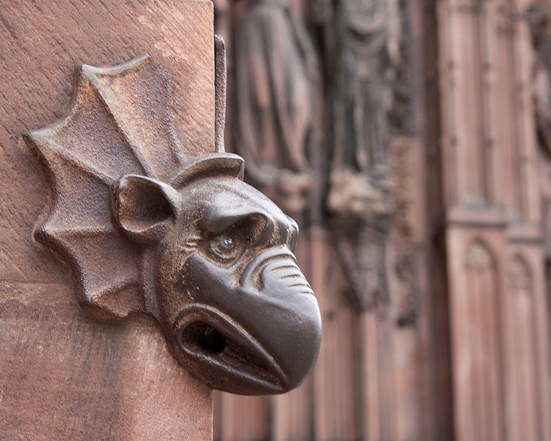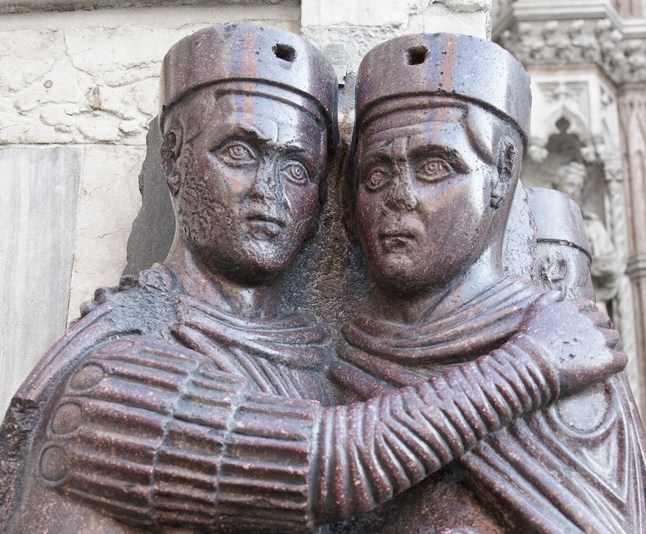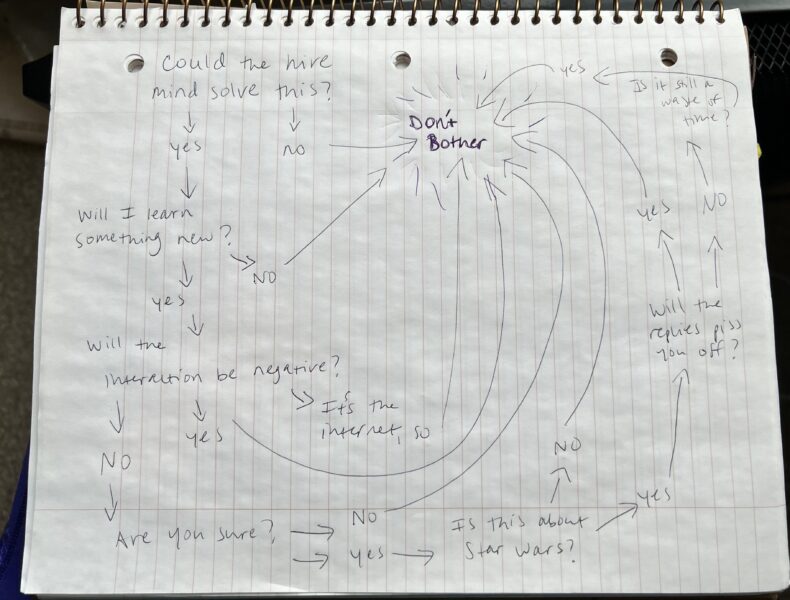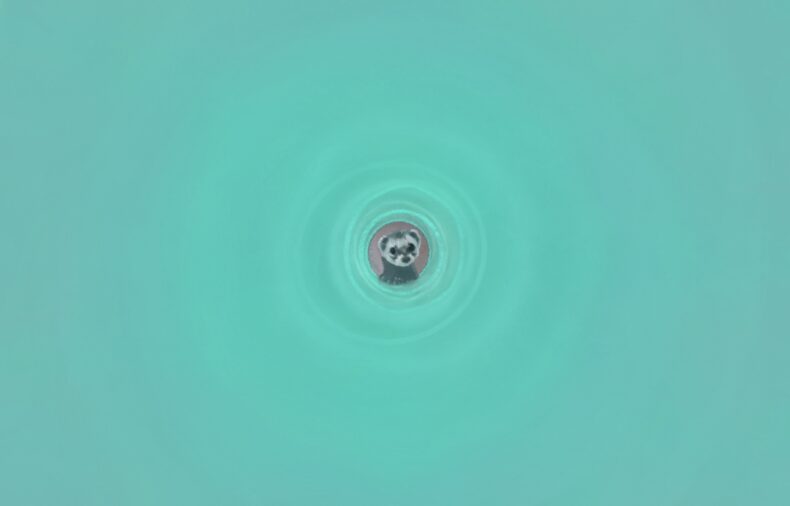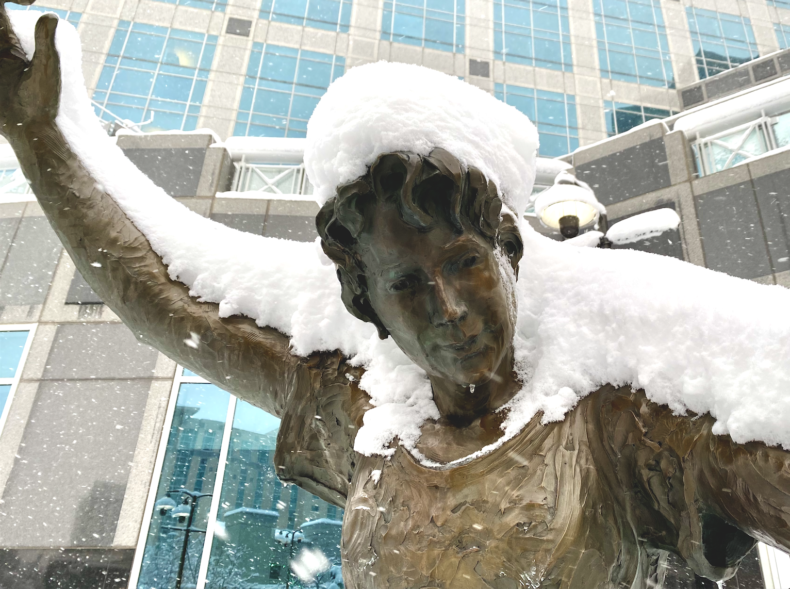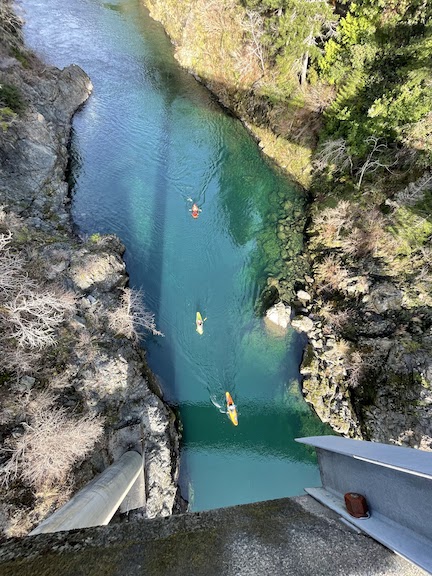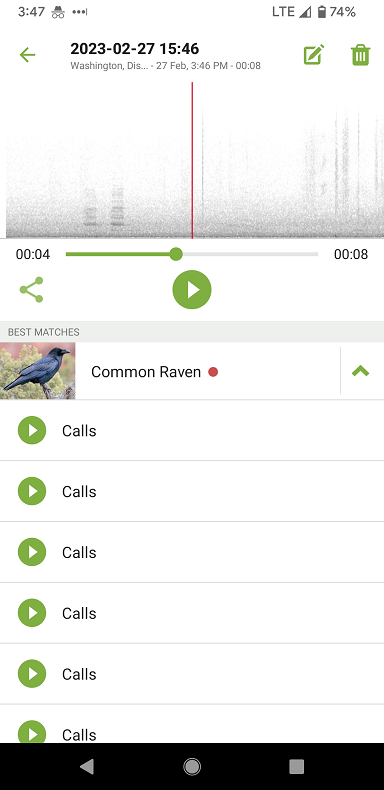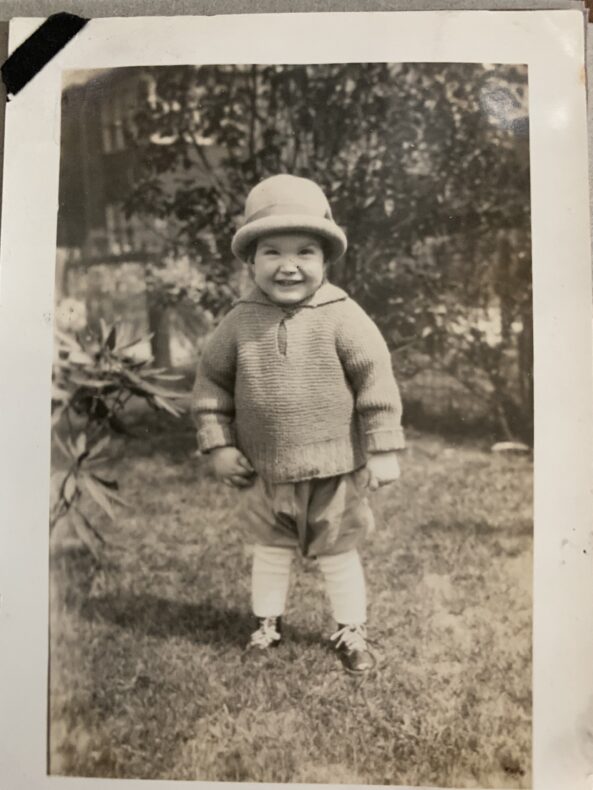I originally wrote this on October 3, 2012, and I’ve long since lost track of this young man. I hope he and his brother have sorted out their battle about science and religion by now but I sort of doubt they have. And in any case, this same battle is now showing up in different form in the bones of our country, in the media and social media, and it’s getting in the way of brothers and sisters everywhere. Which is dumb because what’s most obvious about these two brothers is their love.
I’m generally anxious though I doubt that I have Generalized Anxiety Disorder, or at least when I went to trustable-looking websites and read their lists of symptoms and took their little tests, I didn’t quite fit or pass. But sometimes I get scared and jumpy and fretful and hyper-alert and shaky; I stop thinking clearly; I’m preoccupied by whatever it is that will happen or might happen or could conceivably happen. I really, really don’t like the feeling that I care, I’m invested, I’m involved, and that things go wrong and I’m not remotely in control. Actually I think I just have a heightened case of the human condition.
One day, with an anxiety like a low-lying fog, I was listening to a young man talk about his work, his interests, and his brother. His work is to write software, to write code, which as I understand it, is a matter of breaking a problem into its smallest possible units and ordering them, line by line, so a computer can makes sense of the commands; it sounds like an analytical, orderly kind of job. His interests are in science, all kinds. “Did you hear about the Encode project?” he said. “It was so interesting.” I wondered if what he liked was the genome ordering, line by line, the workings of the body and the evolution of the species. I thought, not for the first time, what a comfort to an anxious mind is the world of science.
Then the young man told me about his brother. They’d been brought up hyper-religious, creationist, home-schooled, and when the young man was a teenager, he began slowly to break away from his family’s beliefs and in the process, he said, his interest in the world grew. And now he and his brother argue. “God created the world in seven days.” “Then how can the layers in ice cores show ages of hundreds of thousands of years?” “God created layers in ice cores old.” Same for the chicken and egg problem: the chicken came first, God had created it full grown. The young man is distressed about his brother and doesn’t like to let the disagreement lie.
But back when the young man was first breaking away from his family’s ways, he had noticed his brother was also following his interests in worldly things — art, music, coding — and he wondered whether his brother might follow him further.
Then one day, through a miscommunication, the young man thought his brother had died. He believed it had happened, that he now lived in a world without his brother. And when he found that his brother was still alive and then saw him in person, he became, he said, “very intense.” His brother became very intense too, he said, and they were emotional with each other. I picture awkward young men who maybe didn’t normally touch each other hugging and hugging and crying for a while.
But after that the differences between the brothers grew, the young man said, and his brother gave up worldly interests. They have to avoid talking about religion; in fact, they have to stop talking about anything of substance at all, the young man said, because when the answer is always God, the conversation stops cold. “To be still talking, you must love each other very much,” I said. “Oh yes, we do,” he said. “Why do you think he became so religious?” I said. “Because of that time I thought he was dead,” he said.
Apparently the brother started thinking about how he should spend the life he now knew was limited. He concluded that he should invest only in lasting things and that bringing other people to God saves them from hell and does permanent good. Religion orders life line by line too, I thought. Meanwhile, the young man continued, he too had started thinking about how to spend a limited life, only he concluded that he didn’t know enough about the world. So he started reading, he said, reading everything, reading through the night, reading to the point where his work suffered, reading because he’d wasted his young life not devouring information.
So, we’re all gonna die and we’re not in control. Anxiety sounds like a reasonable reaction. But order and meaning help, so we choose God, we choose human understanding, we balance God and science. I’m not going to say that science and God both reduce to the need for order as a relief from anxiety. But yes, maybe, to some extent, I’m saying that. Anyway, I’m personally not cut out for faith in God, and when life gets explicit about its non-negotiable conditions, I prefer human understanding and science. I can’t say that I blame the brother though.
_________
Photo credits: Yaisog Bonegnasher; mhobl
